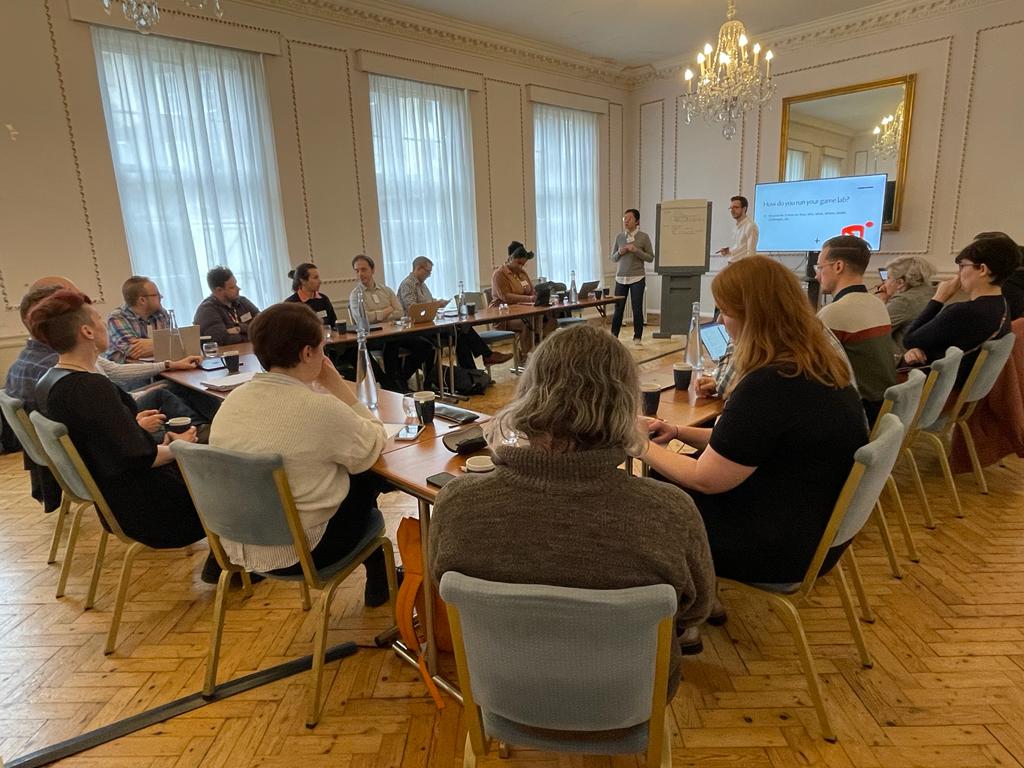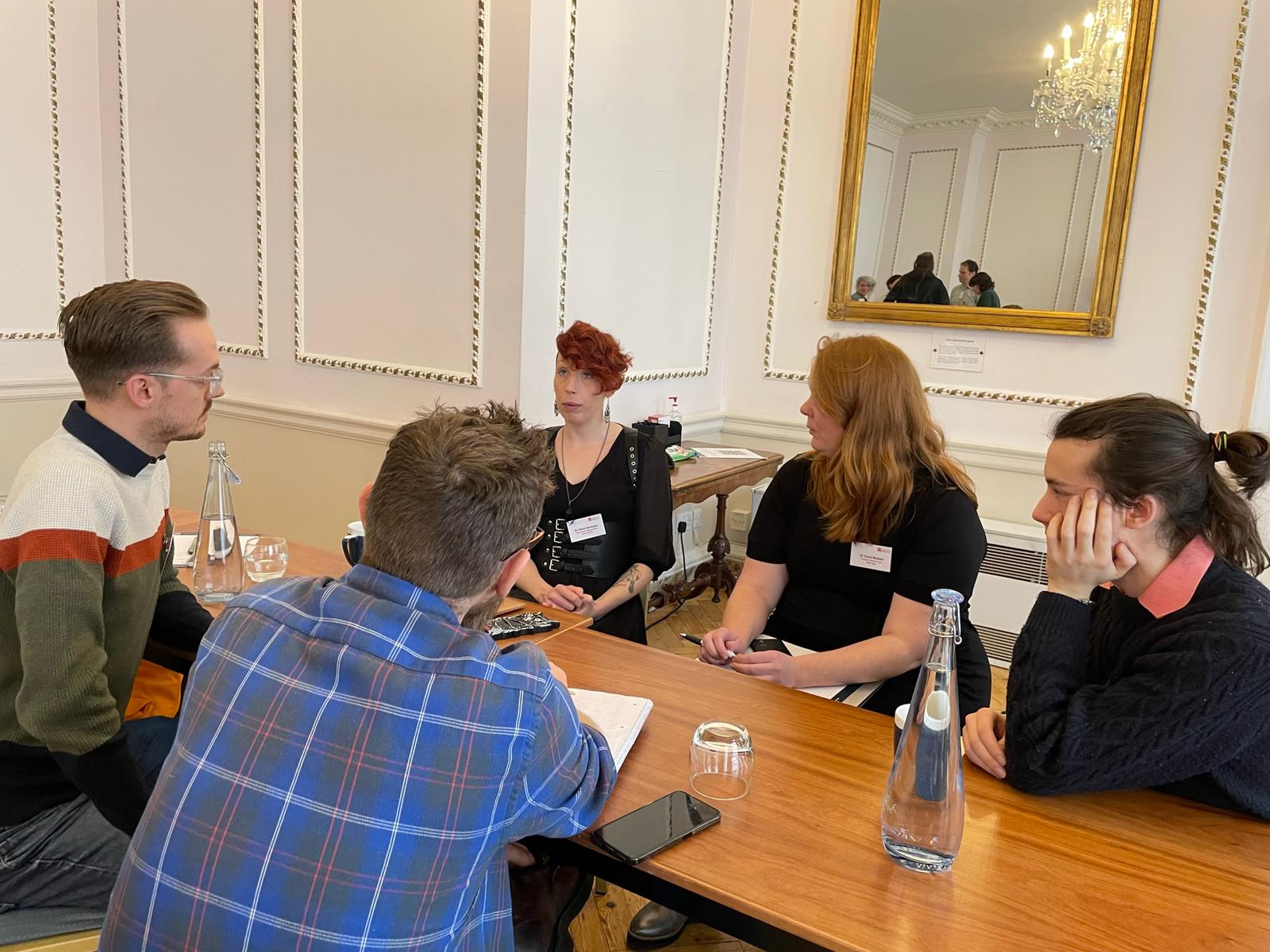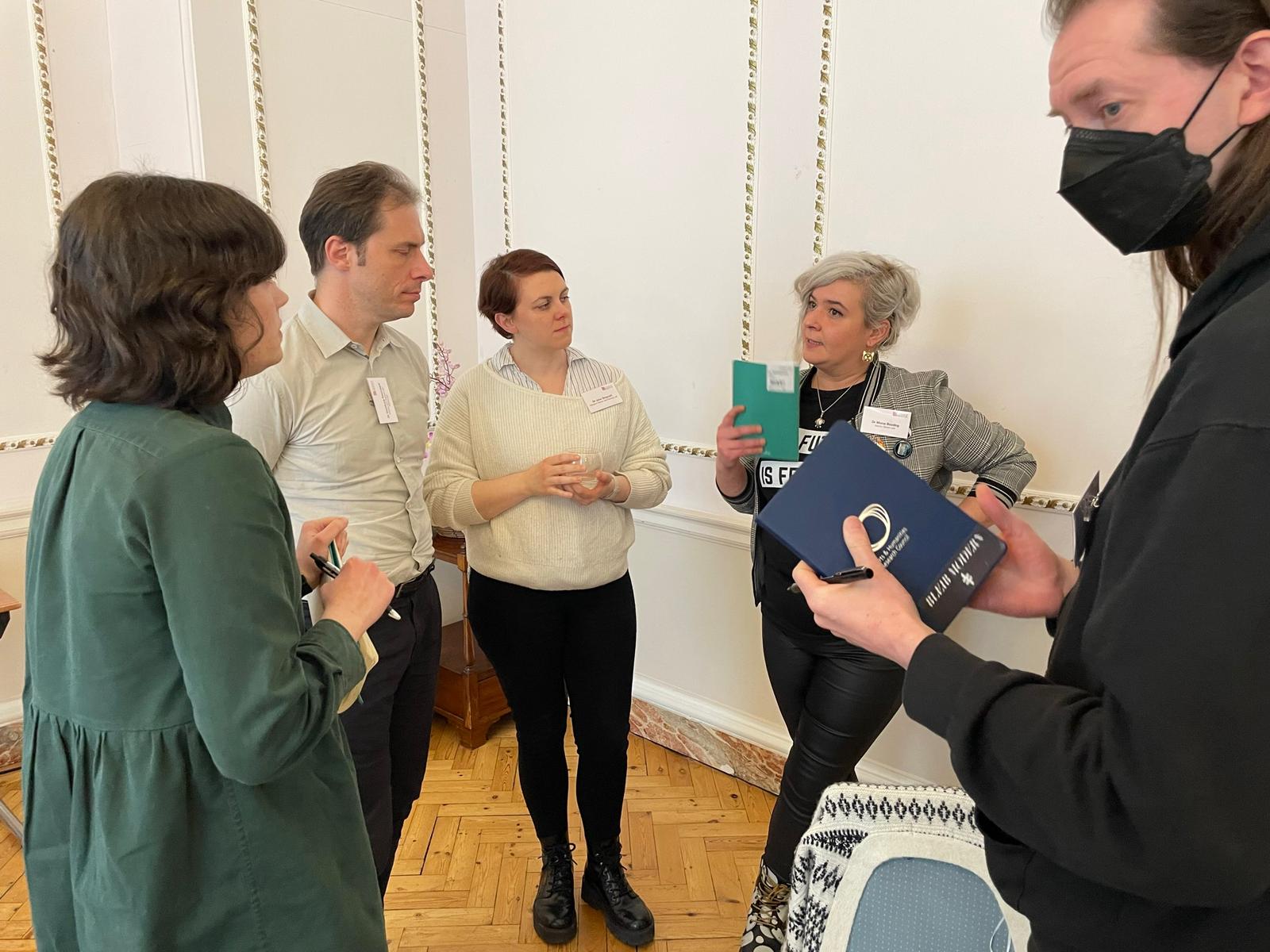
On 24 February, the Bristol Digital Game Lab hosted the first annual UK Digital Game Lab Summit at Clifton Hill House. The aim of the event was to examine shared research themes, explore ways to engage with industry, and discuss the creation of a network of gaming research groups. Thanks to generous funding from the British Academy and the Faculty of Arts at the University of Bristol, we were delighted to welcome the leads of nine UK-based game labs/groups, including:
- The Abertay Game Lab
- The University of Glasgow Games and Gaming Lab
- The Manchester Game Centre
- The History and Games Lab at the University of Edinburgh
- The Historical Games Network
- The MultiPlay Network
- The Interactive Games Research Group at York St John University
- The Birmingham Centre for Media and Cultural Research
- The Playable Media Lab from Bath Spa University.
The summit was conducted in five sections and began with an icebreaker in a series of small groups, starting with the first game that we ever played. This discussion branched into further conversations surrounding games studies as a discipline, and the utility of games both in academia and the gaming industry.
As the summit progressed, discussions focused on how to run a game lab/research group, before covering the research themes emerging from the work of each group present. Such themes included the interplay of history and gaming, analog vs. digital games, experimental and applied gaming, multidisciplinary approaches to gaming, social action, sustainability, and education in/of games.

After lunch, we heard from Iain Dodgeon of OKRE and Ben Byford of Nuclear Candy Limited/the Bristol Game Hub. OKRE is an organization that focuses on supporting entertainment content that challenges perceptions. OKRE has helped develop and fund BAFTA-winning video games, Oscar-nominated films, and supported Emmy award-winning screenwriters. The Bristol Games Hub is a non-profit organization that provides working spaces in Bristol and the West Country to bring together game developers, academics and other industry workers to create games. Both presentations highlighted the importance of organizations outside of academia to support and fund projects for further development.

The Summit concluded with a discussion about funding opportunities, and how to leverage our shared expertise to tackle policy changes in order to support gaming as a discipline. Attendees provided valuable feedback on setting up a network of gaming networks, including the remit that such a network might have.

The Summit was followed by a public lecture by Dr. Tomas Rawlings, Studio Director of Auroch Digital, on ‘Authenticity in Game Development’ in the Wills Memorial Building. His discussion stemmed from Auroch’s work on Mars Horizon and the experience of working with real space agencies when making a game about running a fictional space agency.
Thank you to all of the researchers and staff who contributed to the first Summit, to our funders, and especially to Claudia Jones, our intern, for writing up this report!
We look forward to seeing you at the Manchester Game Centre in 2024 for the next Summit!
